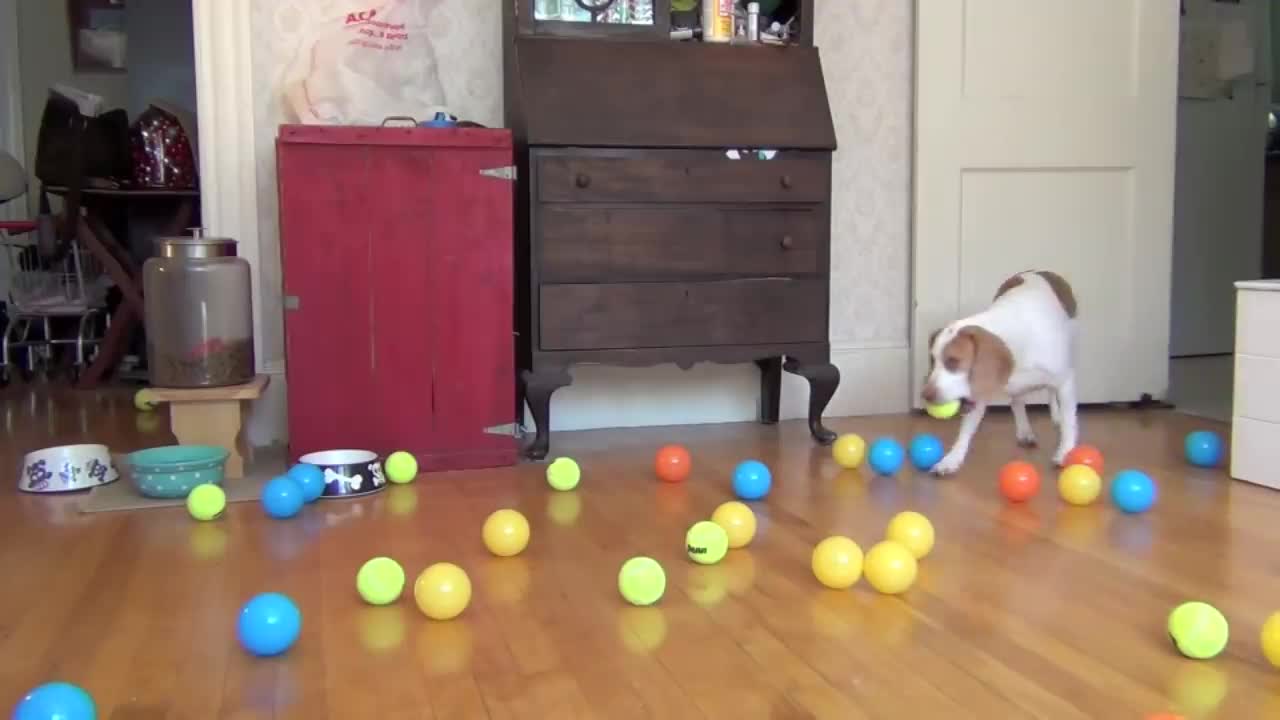Premium Only Content

Dog Surprised with 100 Balls for Birthday | Cute Dog Funny Reaction
Classical conditioning (also known as Pavlovian or respondent conditioning) is a behavioral procedure in which a biologically potent stimulus (e.g. food) is paired with a previously neutral stimulus (e.g. a bell). It also refers to the learning process that results from this pairing, through which the neutral stimulus comes to elicit a response (e.g. salivation) that is usually similar to the one elicited by the potent stimulus.
Classical conditioning is distinct from operant conditioning (also called instrumental conditioning), through which the strength of a voluntary behavior is modified by reinforcement or punishment. However, classical conditioning can affect operant conditioning in various ways; notably, classically conditioned stimuli may serve to reinforce operant responses.
Classical conditioning was first studied in detail by Ivan Pavlov, who conducted experiments with dogs and published his findings in 1897. During the Russian physiologist's study of digestion, Pavlov observed that the dogs serving as his subjects drooled when they were being served meat.
-
 LIVE
LIVE
MissesMaam
8 hours agoRumblers Stranded Again! | Sons of the Forest 💚✨
810 watching -
 16:03
16:03
DeVory Darkins
1 day ago $20.04 earned"Shut The F**K UP!" Charles Barkley EXPLODES As DEMS MELTDOWN over Trump
47K255 -
 4:44:04
4:44:04
Akademiks
10 hours agoDiddy is RUNNING The Jail! Feds Fear He's Unstoppable even behind Bars! Drake Revenge Era?
87.8K12 -
 5:26:52
5:26:52
Fed Reacts
8 hours agoReaction To Twitch Adpocolypse, Thots, Debating Blacks & Liberals!
55.1K10 -
 2:12:41
2:12:41
TheSaltyCracker
11 hours agoMSM Implodes After Trump Win ReeEEeE Stream 11-17-24
212K479 -
 4:31
4:31
SLS - Street League Skateboarding
10 days agoFuna Nakayama 3rd Place at SLS Sydney 2024 | Best Tricks
66.3K7 -
 2:15:24
2:15:24
vivafrei
20 hours agoEp. 236: BARNES IS BACK! Election Recap! Trump Nominees! Trump Persecutions - Wha's Next? & MORE!
251K269 -
 6:25:47
6:25:47
SynthTrax & DJ Cheezus Livestreams
19 hours agoDJ Cheezus & DEF JAM Fight for NY on PS2 - Hip Hop Violence and Vibes (1pm PST / 4pm EST)
101K4 -
 2:01:47
2:01:47
Nerdrotic
14 hours ago $14.39 earnedEgypt, Peru and Guatemala Luke Caverns RETURNS! | Forbidden Frontier #082
86.1K10 -
 LIVE
LIVE
Vigilant News Network
14 hours agoFDA Approves Trials for New “Pandemic” Vaccine | Media Blackout
1,971 watching